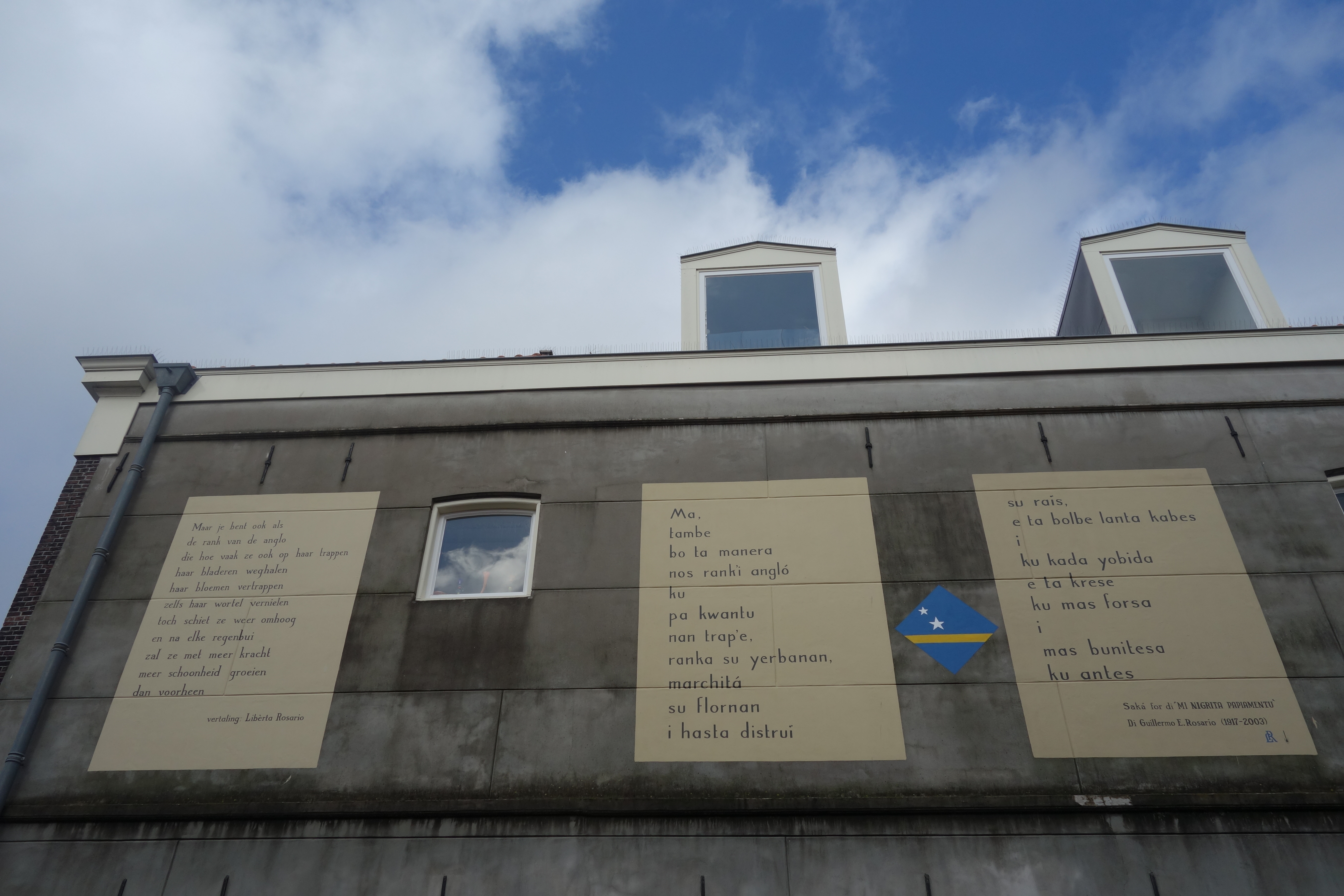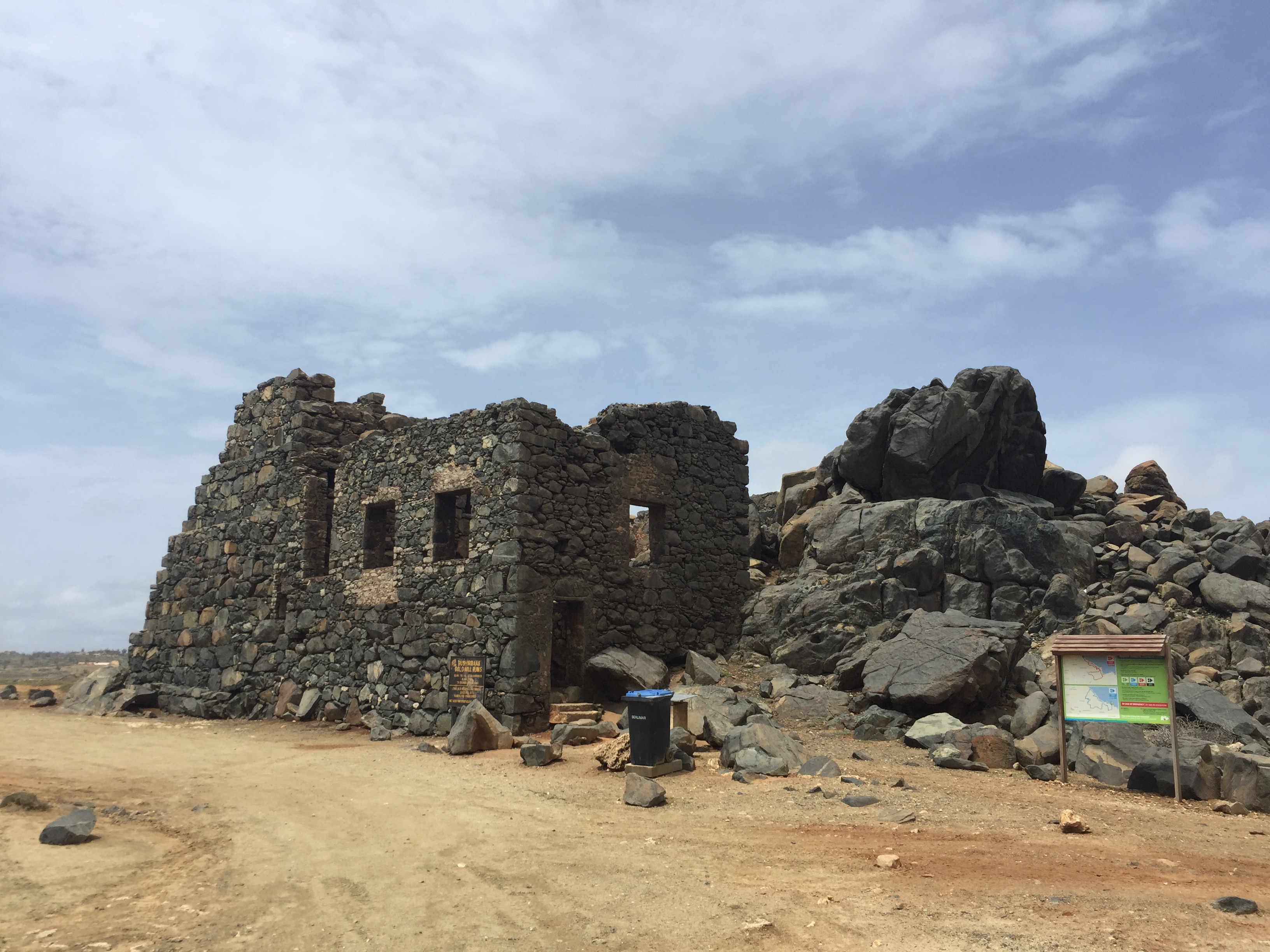|
Frenchman's Pass
(in Dutch) or (in Papiamento) (literally: Frenchman's Pass) is a narrow passage on the island of Aruba, nestled between coral cliffs in Balashi. Frenchman's pass is located north of the area known as Spanish Lagoon and near the remnants of the Balashi Gold Mine. The legend has it that in the early 17th century, French pirates attempted to invade Aruba but were confronted with fierce resistance from the indigenous people in this narrow passage. This significant encounter left a lasting impact, and as a result, the passage came to be known as ''Franse Pas'' in Dutch or ''Rooi Frances'' in Papiamento Papiamento () or Papiamentu (; ) is a Portuguese-based creole language spoken in the Dutch Caribbean. It is the most widely spoken language on Aruba, Bonaire, and Curaçao ( ABC Islands). The language, spelled in Aruba and in Bonaire and .... In English, it translates to “Frenchman Pass". Many indigenous people were killed during the invasion, and local residents near ... [...More Info...] [...Related Items...] OR: [Wikipedia] [Google] [Baidu] |
Pass (geography)
A mountain pass is a navigable route through a mountain range or over a ridge. Since mountain ranges can present formidable barriers to travel, passes have played a key role in trade, war, and both Human migration, human and animal migration throughout history. At lower elevations it may be called a hill pass. A mountain pass is typically formed between two volcanic peaks or created by erosion from water or wind. Overview Mountain passes make use of a gap (landform), gap, saddle (landform), saddle, col or notch (landform), notch. A topographic saddle is analogous to the mathematical concept of a saddle surface, with a saddle point marking the minimum high point between two valleys and the lowest point along a ridge. On a topographic map, passes can be identified by contour lines with an hourglass shape, which indicates a low spot between two higher points. In the high mountains, a difference of between the summit and the mountain is defined as a mountain pass. Passes are o ... [...More Info...] [...Related Items...] OR: [Wikipedia] [Google] [Baidu] |
Spanish Lagoon
Spaans Lagoen, which translates to "Spanish lagoon", is a coastal bay and wetland area of Aruba. Designated as a Ramsar Convention, Ramsar site since 1980, and in February 2017, it was included within the boundary of the Arikok National Park. It is the only inner bay of Aruba and was formed during the Last Glacial Period, last ice age. This ecosystem features tidal Mudflat, mudflats and mangrove swamps, serving as a vital feeding and breeding ground for birds. Spaans Lagoen is one of the highest biodiversity areas on Aruba. It is also adjacent to Arikok National Park. Overview Spaans Lagoen stretches approximately in length and ranges in width from wide, covering an area of . Its distinctive tidal influence has given rise to a rare ecosystem, with its shores covered by mangroves. This area plays a crucial role as a feeding and breeding ground for birds and a nursery for coral reef fish, reef fish and crustaceans. Palm Island, Aruba, Palm Island is located at the mouth of Spaans ... [...More Info...] [...Related Items...] OR: [Wikipedia] [Google] [Baidu] |
Aruba
Aruba, officially the Country of Aruba, is a constituent island country within the Kingdom of the Netherlands, in the southern Caribbean Sea north of the Venezuelan peninsula of Paraguaná Peninsula, Paraguaná and northwest of Curaçao. In 1986, Aruba became a constituent country within the Kingdom of the Netherlands and acquired the formal name the Country of Aruba. Aruba has an area of . Aruba measures in length from its northwestern to its southeastern end and is across at its widest point. Aruba is geologically located in South America, South-America, lying on the South-American continental shelf. Alongside Bonaire and Curaçao, Aruba forms a group referred to as the ABC islands (Leeward Antilles), ABC islands. The Dutch Caribbean encompasses the ABC islands along with the other three substantial islands, the SSS islands. In contrast to much of the Caribbean, which experiences humid tropical climates, Aruba has a dry climate with an arid Deserts and xeric shrublands, xer ... [...More Info...] [...Related Items...] OR: [Wikipedia] [Google] [Baidu] |
Dutch Language
Dutch ( ) is a West Germanic languages, West Germanic language of the Indo-European language family, spoken by about 25 million people as a first language and 5 million as a second language and is the List of languages by total number of speakers, third most spoken Germanic language. In Europe, Dutch is the native language of most of the population of the Netherlands and Flanders (which includes 60% of the population of Belgium). "1% of the EU population claims to speak Dutch well enough in order to have a conversation." (page 153). Dutch was one of the official languages of South Africa until 1925, when it was replaced by Afrikaans, a separate but partially Mutual intelligibility, mutually intelligible daughter language of Dutch. Afrikaans, depending on the definition used, may be considered a sister language, spoken, to some degree, by at least 16 million people, mainly in South Africa and Namibia, and evolving from Cape Dutch dialects. In South America, Dutch is the native l ... [...More Info...] [...Related Items...] OR: [Wikipedia] [Google] [Baidu] |
Papiamento
Papiamento () or Papiamentu (; ) is a Portuguese-based creole language spoken in the Dutch Caribbean. It is the most widely spoken language on Aruba, Bonaire, and Curaçao ( ABC Islands). The language, spelled in Aruba and in Bonaire and Curaçao, is largely based on Portuguese as spoken in the 15th and 16th centuries, and has been influenced considerably by Dutch and Venezuelan Spanish. Due to lexical similarities between Portuguese and Spanish, it is difficult to pinpoint the exact origin of some words. Though there are different theories about its origins, most linguists now believe that Papiamento emerged from the Portuguese-based creole languages of the West African coasts, as it has many similarities with Cape Verdean Creole and Guinea-Bissau Creole. History There are various theories about the origin and development of the Papiamento language, and precise history has not been established. Its parent language is surely West Iberian Romance, but scholars di ... [...More Info...] [...Related Items...] OR: [Wikipedia] [Google] [Baidu] |
Balashi
Bushiribana and Balashi are the sites of two former gold smelters on the Caribbean island of Aruba. Bushiribana The Aruba Island Gold Mining Company built the Bushiribana smelter in 1825 to extract gold from the ore that was being mined in the nearby hills of Ceru Plat; it operated for ten years. Today, its remains are a stopping-off point for tourists on their way to view the Aruba Natural Bridge, which collapsed on 2 September 2005. Balashi In 1899, the Aruba Gold Concessions Company built a gold smelter at Balashi, at the southern end of Frenchman's Pass. In 1916 during the First World War, it closed for lack of raw materials and spare parts, as most of them came from Germany. In 1933, a sea water desalination Desalination is a process that removes mineral components from saline water. More generally, desalination is the removal of salts and minerals from a substance. One example is Soil salinity control, soil desalination. This is important for agric ... plant wa ... [...More Info...] [...Related Items...] OR: [Wikipedia] [Google] [Baidu] |
France
France, officially the French Republic, is a country located primarily in Western Europe. Overseas France, Its overseas regions and territories include French Guiana in South America, Saint Pierre and Miquelon in the Atlantic Ocean#North Atlantic, North Atlantic, the French West Indies, and List of islands of France, many islands in Oceania and the Indian Ocean, giving it Exclusive economic zone of France, one of the largest discontiguous exclusive economic zones in the world. Metropolitan France shares borders with Belgium and Luxembourg to the north; Germany to the northeast; Switzerland to the east; Italy and Monaco to the southeast; Andorra and Spain to the south; and a maritime border with the United Kingdom to the northwest. Its metropolitan area extends from the Rhine to the Atlantic Ocean and from the Mediterranean Sea to the English Channel and the North Sea. Its Regions of France, eighteen integral regions—five of which are overseas—span a combined area of and hav ... [...More Info...] [...Related Items...] OR: [Wikipedia] [Google] [Baidu] |
Pirate
Piracy is an act of robbery or criminal violence by ship or boat-borne attackers upon another ship or a coastal area, typically with the goal of stealing cargo and valuable goods, or taking hostages. Those who conduct acts of piracy are called pirates, and vessels used for piracy are called pirate ships. The earliest documented instances of piracy were in the 14th century BC, when the Sea Peoples, a group of ocean raiders, attacked the ships of the Aegean and Mediterranean civilisations. Narrow channels which funnel shipping into predictable routes have long created opportunities for piracy, as well as for privateering and commerce raiding. Historic examples of such areas include the waters of Gibraltar, the Strait of Malacca, Madagascar, the Gulf of Aden, and the English Channel, whose geographic structures facilitated pirate attacks. The term ''piracy'' generally refers to maritime piracy, although the term has been generalized to refer to acts committed on land, in th ... [...More Info...] [...Related Items...] OR: [Wikipedia] [Google] [Baidu] |



